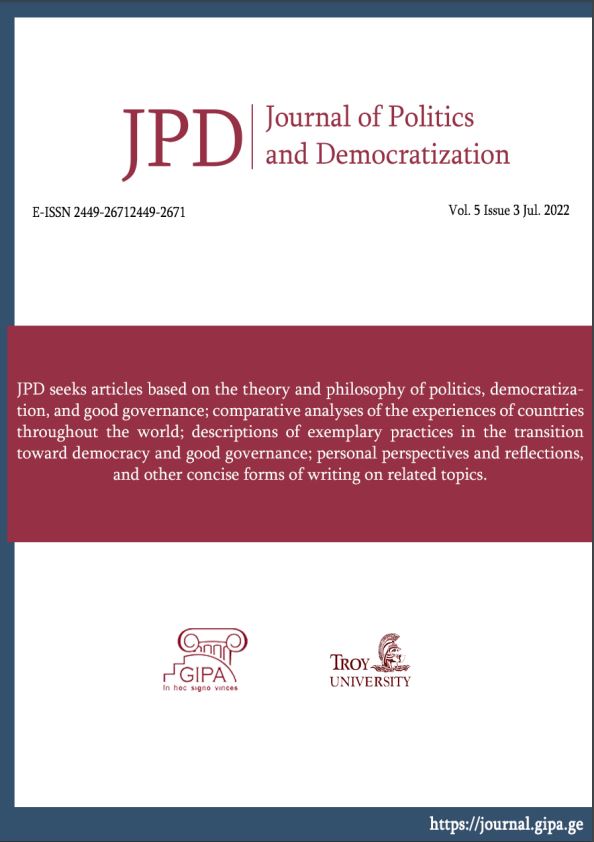‘Georgian Way’ of Policy Advocacy: Non-state Actors’ Influence on Public Policy in Georgia A Comparative Analysis of Policy Advocacy under the United National Movement’s and Georgian Dream’s Governance
Main Article Content
Abstract
Georgia has often been the target of interest for public policy scholars, however, the ‘Georgian way of policy advocacy’, its peculiarities in modern Georgia, one of the postSoviet country, is less explored. The research article aims to examine the relationship between the success of policy advocacy in Georgia initiated by non-state actors and the factors contributing their success. Thus, the article presents 16 cases of policy advocacy during 2003-2019, under governance of leading parties: The United National Movement and the Georgian Dream and provides the comparative analysis on advocacy achievements, opportunities and challenges.
According to the key findings of research, the consistency of undertaken actions, sound strategy and argumentation, heterogeneity of the advocacy group as well as a high level of internationalization are important elements for achieving success by non-state actors during the advocacy process. However, the mentioned elements are often not the ultimate determinants for getting the intended results. The main factors of success in Georgia turned to be a so-called ‘window of opportunity’ and its timely application for reaching the targets. The study also confirmed that in order to achieve a positive dynamic in the advocacy process, the influence of so-called ‘policy entrepreneur’ was essential under the rule of the both political parties.
In contrast to the world trend, another interesting point was the linkage of advocacy success to the changing of status-quo. Namely, as research data confirmed, the most of Georgian cases of policy advocacy were successful, where the coalition was in favor of changing the status-quo.
